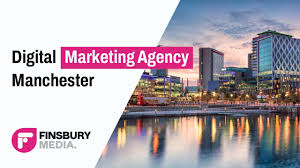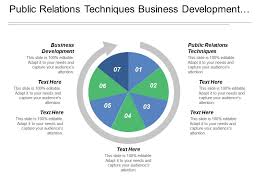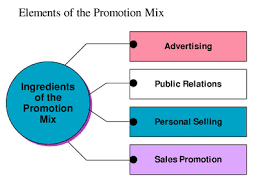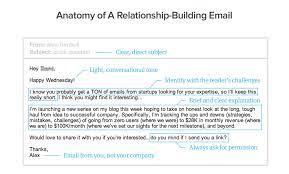The Role of a Digital PR Agency in Manchester
The Role of a Digital PR Agency in Manchester
Manchester, a vibrant city known for its thriving business community, is home to many digital PR agencies that play a crucial role in helping businesses navigate the complex world of online communication. These agencies offer a range of services aimed at enhancing brand visibility, reputation management, and audience engagement in the digital landscape.
One key aspect of a digital PR agency’s role is to create and implement strategic communication plans that leverage various online channels to reach target audiences effectively. By utilising social media platforms, websites, blogs, and online publications, these agencies help businesses amplify their message and connect with their customers in meaningful ways.
Furthermore, digital PR agencies in Manchester often specialise in content creation and distribution. They work closely with clients to develop compelling stories, press releases, and multimedia content that resonate with their target audience. By crafting engaging and shareable content, these agencies help businesses enhance their online presence and increase brand awareness.
Another essential function of a digital PR agency is managing online reputation. In today’s digital age, maintaining a positive online reputation is vital for businesses. These agencies monitor online conversations about their clients, respond to feedback and reviews, and proactively address any negative publicity to safeguard their clients’ reputation.
In addition to these core services, digital PR agencies in Manchester also offer services such as influencer marketing, search engine optimisation (SEO), crisis communication management, and analytics reporting. By employing a combination of these strategies, businesses can effectively reach their target audience, drive website traffic, improve search engine rankings, and measure the impact of their online campaigns.
In conclusion, the role of a digital PR agency in Manchester is multifaceted and essential for businesses looking to succeed in today’s competitive digital landscape. By partnering with a reputable agency that understands the nuances of online communication and has the expertise to navigate the ever-changing digital environment, businesses can achieve their communication goals and stand out in the crowded online space.
Top 7 Advantages of Partnering with a Digital PR Agency in Manchester
- 1. Expertise in navigating the digital landscape
- 2. Tailored communication strategies for target audiences
- 3. Amplification of brand message through online channels
- 4. Creation of engaging and shareable content
- 5. Proactive management of online reputation
- 6. Access to influencer marketing opportunities
- 7. Data-driven insights for measuring campaign impact
Seven Drawbacks of Hiring a Digital PR Agency in Manchester
- High competition among digital PR agencies in Manchester may result in higher costs for services.
- Limited availability of top-tier talent in the industry may affect the quality of service delivery.
- Difficulty in standing out among numerous digital PR agencies in Manchester, leading to potential visibility challenges.
- Potential conflicts of interest when agencies work with multiple clients in the same industry, impacting objectivity.
- Communication barriers can arise due to differences in expectations between clients and digital PR agencies.
- Inconsistent results due to external factors such as changes in algorithms or platform policies affecting campaign performance.
- Risk of data breaches or security issues when handling sensitive client information online.
1. Expertise in navigating the digital landscape
With expertise in navigating the digital landscape, digital PR agencies in Manchester play a pivotal role in helping businesses thrive in the ever-evolving online environment. These agencies possess a deep understanding of digital platforms, trends, and best practices, allowing them to craft tailored strategies that effectively reach and engage target audiences. By leveraging their knowledge of social media, online publications, SEO, and other digital channels, these agencies can guide businesses towards maximising their online presence and achieving their communication objectives with precision and impact.
2. Tailored communication strategies for target audiences
Digital PR agencies in Manchester excel in developing tailored communication strategies for target audiences. By understanding the unique characteristics, preferences, and behaviours of each client’s target demographic, these agencies can create bespoke campaigns that resonate with the intended audience. Through in-depth research and analysis, digital PR agencies craft messages and content that are specifically designed to engage and connect with the target audience on a personal level, ultimately driving better brand awareness, customer engagement, and loyalty. This personalised approach ensures that businesses can effectively reach their desired audience and achieve their communication objectives in a meaningful and impactful way.
3. Amplification of brand message through online channels
One significant advantage of partnering with a digital PR agency in Manchester is the amplification of brand message through online channels. These agencies have the expertise to strategically leverage social media platforms, websites, blogs, and online publications to reach target audiences effectively. By crafting compelling content and utilising various digital channels, they can enhance brand visibility, engage with customers in meaningful ways, and ensure that the brand message resonates with the right audience across the digital landscape.
4. Creation of engaging and shareable content
One significant advantage of partnering with a digital PR agency in Manchester is their expertise in creating engaging and shareable content. These agencies excel in developing compelling stories, press releases, and multimedia content that resonate with target audiences. By crafting content that captures attention and encourages sharing, businesses can enhance their online presence, increase brand awareness, and drive meaningful engagement with their customers. The ability to create content that is not only informative but also share-worthy is a valuable asset that can help businesses stand out in the competitive digital landscape.
5. Proactive management of online reputation
One significant advantage of partnering with a digital PR agency in Manchester is their proactive management of online reputation. These agencies monitor online conversations, respond promptly to feedback and reviews, and take proactive steps to address any negative publicity. By staying ahead of potential reputation issues and actively shaping the narrative surrounding their clients, digital PR agencies help businesses maintain a positive online image and build trust with their target audience.
6. Access to influencer marketing opportunities
One significant advantage of partnering with a digital PR agency in Manchester is the access to influencer marketing opportunities. These agencies have established relationships with influencers across various industries and social media platforms, enabling businesses to collaborate with influential personalities to promote their brand, products, or services. By leveraging influencer marketing, businesses can reach a wider audience, increase brand visibility, and build credibility among their target demographic. The expertise of digital PR agencies in identifying and engaging with relevant influencers ensures that businesses can maximise the impact of their influencer partnerships and achieve their marketing objectives effectively.
7. Data-driven insights for measuring campaign impact
One significant advantage of partnering with a digital PR agency in Manchester is their ability to provide data-driven insights for measuring campaign impact. By leveraging analytics tools and monitoring key performance indicators, these agencies can track the effectiveness of communication strategies in real-time. This data-driven approach allows businesses to gain valuable insights into audience engagement, website traffic, social media interactions, and other metrics, enabling them to make informed decisions and optimise future campaigns for maximum impact and ROI.
High competition among digital PR agencies in Manchester may result in higher costs for services.
The high competition among digital PR agencies in Manchester can be a significant drawback, as it may lead to increased costs for services. With numerous agencies vying for clients in the bustling digital landscape of Manchester, there is a pressure to differentiate and offer unique value propositions, which can sometimes translate to higher service fees. This heightened competition could potentially drive up prices and make it challenging for businesses, especially smaller ones with limited budgets, to access quality digital PR services without incurring substantial costs.
Limited availability of top-tier talent in the industry may affect the quality of service delivery.
The limited availability of top-tier talent in the digital PR agency industry in Manchester poses a significant con that can impact the quality of service delivery. With a shortage of experienced professionals with in-depth knowledge and skills in digital PR, agencies may struggle to meet the high standards expected by clients. This scarcity of top talent can lead to challenges in executing effective communication strategies, creating compelling content, and managing online reputation effectively. As a result, businesses may face limitations in achieving their communication goals and maximising their online presence due to the constraints imposed by the lack of top-tier talent in the industry.
Difficulty in standing out among numerous digital PR agencies in Manchester, leading to potential visibility challenges.
One significant con faced by digital PR agencies in Manchester is the difficulty in standing out among the numerous competitors in the market. With a saturated industry landscape, agencies may struggle to differentiate themselves and showcase their unique value proposition effectively. This can lead to potential visibility challenges, as businesses may find it challenging to identify the right agency that aligns with their specific communication needs and objectives. In such a competitive environment, digital PR agencies must invest in innovative marketing strategies and compelling branding efforts to overcome this hurdle and capture the attention of potential clients effectively.
Potential conflicts of interest when agencies work with multiple clients in the same industry, impacting objectivity.
One significant con of digital PR agencies in Manchester is the potential for conflicts of interest when these agencies work with multiple clients in the same industry. This situation can compromise the agency’s objectivity and impartiality, as they may be inclined to favour one client over another to maintain or secure business relationships. This conflict of interest can lead to biased communication strategies, diluted messaging, and a lack of focus on achieving the best outcomes for each client. Businesses should be cautious when selecting a digital PR agency to ensure that their interests are prioritised and that they receive dedicated and unbiased support in their communication efforts.
Communication barriers can arise due to differences in expectations between clients and digital PR agencies.
Communication barriers can be a significant drawback when working with digital PR agencies in Manchester, as differences in expectations between clients and agencies can lead to misunderstandings and inefficiencies. Clients may have specific goals and visions for their communication campaigns that may not align with the strategies proposed by the agency. This mismatch in expectations can result in delays, miscommunication, and ultimately hinder the effectiveness of the digital PR efforts. Clear and open communication is crucial to overcome this con and ensure that both parties are on the same page to achieve successful outcomes.
One significant drawback of working with a digital PR agency in Manchester is the potential for inconsistent results stemming from external factors beyond the agency’s control. Changes in algorithms or platform policies can have a significant impact on campaign performance, leading to fluctuations in outcomes and hindering the effectiveness of communication strategies. Businesses may find it challenging to maintain consistent engagement and visibility online when faced with these external variables, highlighting the need for agile approaches and proactive monitoring to adapt to evolving digital landscapes.
One significant con of engaging a digital PR agency in Manchester is the inherent risk of data breaches or security issues when handling sensitive client information online. With the increasing reliance on digital platforms for communication and data storage, there is a heightened vulnerability to cyber threats and malicious attacks. The potential exposure of confidential client data poses a serious concern for businesses, as any breach could lead to reputational damage, financial losses, and legal implications. It is essential for businesses to carefully assess the security measures and protocols implemented by digital PR agencies to safeguard against data breaches and ensure the protection of sensitive information.












